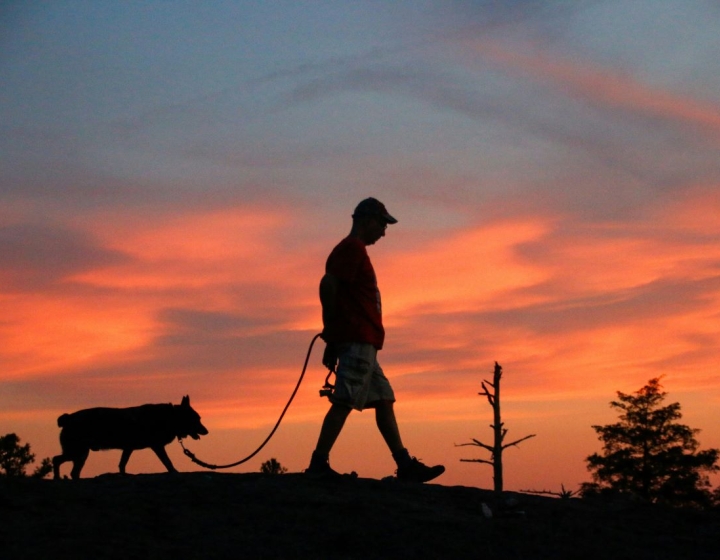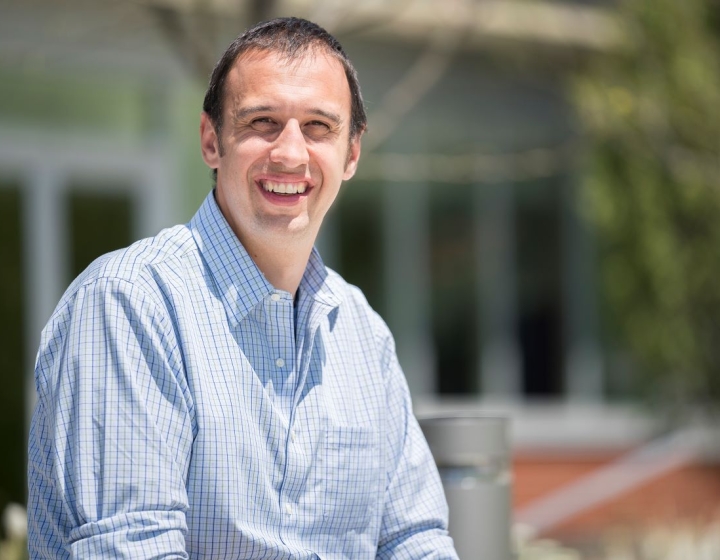Cornell faculty member helps USDA train veterinarians on foreign animal diseases
 Dr. Alfonso Torres, in collaboration with Dr. Peter Fernandez from APHIS, is leading the charge to increase the number of veterinarians familiar with foreign animal diseases by teaching a class at Plum Island Animal Disease Center.
Dr. Alfonso Torres, in collaboration with Dr. Peter Fernandez from APHIS, is leading the charge to increase the number of veterinarians familiar with foreign animal diseases by teaching a class at Plum Island Animal Disease Center.
“To safeguard the health of our country’s valuable agricultural animals, we must help safeguard the health of animals across the globe, said Kevin Shea, USDA’s Animal and Plant Health Inspection Service (APHIS) Administrator. “And the only real way to do that—to deal with significant animal disease threats swiftly and effectively, wherever they appear—is by pooling our expertise.“
APHIS protects the health of America’s more than 610 million head of livestock and poultry, and also works with veterinarians across the globe to address disease outbreaks when they arise. APHIS offers training classes to help familiarize veterinarians with ten of the most serious animal diseases. The trainings provide a global network of highly-trained individuals who can work collectively, readily identify and contain these diseases, and in turn, minimize damage to animal agriculture and people’s livelihoods.
While Drs. Torres and Fernandez are leading the class at Plum Island, they do not consider themselves teachers providing instruction to students, but rather colleagues sharing their experience and knowledge about animal diseases of economic importance. And they know just how damaging those diseases can be.
Dr. Fernandez decided to study veterinary medicine in Madrid after a Cooperative Education program at Plum Island, changing his focus from marine virology because he was intrigued by how diseases moved within and among animal populations. In his work with international colleagues, he also saw how important this type of training was to helping developing countries preserve animal proteins which could otherwise be lost to the scourges of disease. His favorite part of this course is seeing that ‘aha, moment’ when using a different approach to explaining some aspect of a disease or its epidemiology elicits comprehension and thoughtful follow-up questions.
Dr. Torres made his decision to become a veterinarian a little earlier in life - at age ten. He grew up on a ranch in Colombia, South America, where he saw first-hand the economic impact that animal diseases like Foot-and-Mouth Disease had on the farmers. Since then, he’s spent most of his career teaching, researching and providing outreach educational activities at major universities, helping a new generation of veterinarians develop their skills. He enjoys the extraordinary multiplying effect of teaching professional veterinarians and veterinary students, as they will interact and transmit learned knowledge and skills to others within their circle of influence. This expands the network of knowledge even further.
Being able to recognize and respond early is key to successfully combating the animal diseases discussed at Plum Island. The longer it takes to contain a disease, the chance of it spreading to new areas increases. And when dealing with these types of diseases, containing the disease means stopping or severely limiting animal movement – which can have a devastating effect on trade and the economy in an affected country.
“Only by exchanging our knowledge and working together can we build a strong global network to protect agriculture—and, crucially, our ever-expanding international trade in animals and animal products,” said Shea. “Working together, we can do collectively what no one of us can do entirely for ourselves.”
Dr. Torres agrees, “The unique opportunity of having veterinary participants from several countries in the same course creates linkages of international collaboration that help promote a sense of global responsibility in the fight against the prevention and control of very serious animal diseases.”
As part of its capacity-building program, APHIS offers five courses each year at the Plum Island Animal Disease Center in New York to train veterinarians on foreign animal diseases. APHIS offers training for U.S. and international veterinarians on foreign animal diseases. In FY13, APHIS trained 139 veterinarians from the U.S. and 23 other countries, increasing the number of highly-trained individuals who can quickly address animal disease outbreaks across the globe - protecting animal health and agriculture. Plum Island is the only facility where these courses can be held because they involve inoculating animals with ten severe foreign animal diseases, including Foot and Mouth Disease.





